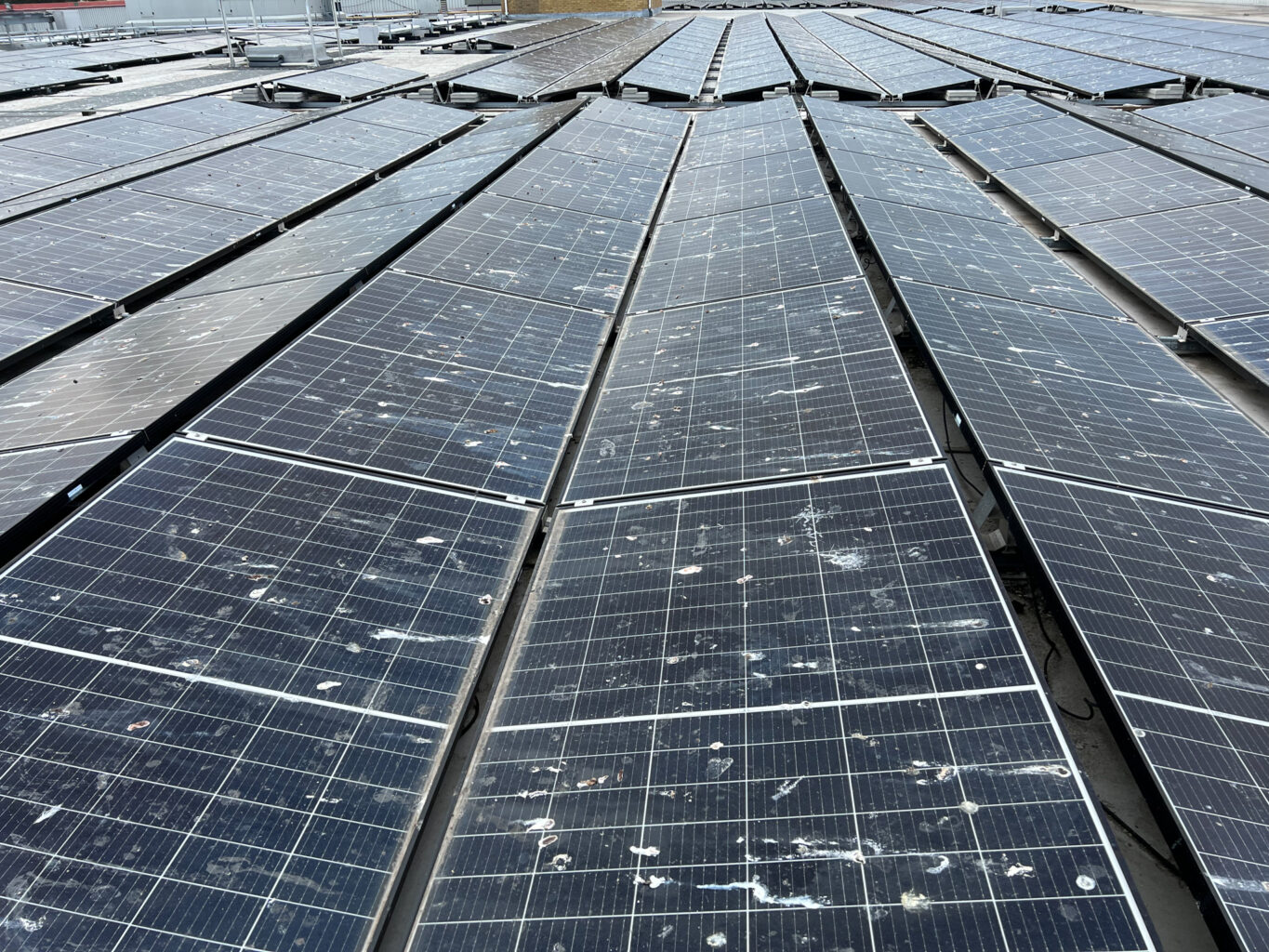
The Importance of Cleaning Solar Panels to Maximising Efficiency
In an era where renewable energy is gaining prominence, solar power stands out as a significant contributor to sustainable electricity generation. Solar panels, the key components of solar energy systems, harness the power of sunlight and convert it into usable electricity. However, many solar panel owners overlook a crucial aspect of maintenance: regular cleaning. In this blog, we will delve into the importance of cleaning solar panels and highlight the benefits it brings to their overall efficiency and longevity.
1. Maximising Energy Output:
Solar panels operate optimally when exposed to direct sunlight. Dust, dirt, bird droppings, leaves, and other debris can accumulate on the panel’s surface over time, forming a layer that obstructs sunlight absorption. By regularly cleaning the panels, you ensure that they receive the maximum amount of sunlight, thus maximizing their energy output. Clean panels can generate significantly more electricity compared to dirty ones.
2. Improving Efficiency and Performance:
Efficiency is a critical aspect of any solar energy system. When dirt or grime settles on the surface of solar panels, it acts as a barrier, reducing the light transmission to the photovoltaic cells. Consequently, the panels produce less electricity for the same amount of sunlight. By cleaning the panels, you remove this barrier and allow the cells to operate at their highest efficiency, resulting in improved performance and increased energy production.
3. Extending Lifespan:
Solar panels are designed to withstand various weather conditions and last for decades. However, neglecting their cleanliness can negatively impact their longevity. Dirt and debris, especially when combined with moisture, can lead to the development of algae, mold, or mildew on the surface of the panels. These growths can corrode the panels’ protective coatings, damage the cells, and potentially decrease their lifespan. Routine cleaning helps prevent the accumulation of such damaging elements, ensuring that your solar panels remain operational for their intended lifespan.
4. Maintaining Warranty Requirements:
Solar panel warranties often include specific maintenance conditions, and failure to comply with them may void the warranty. Regular cleaning is usually a requirement specified by manufacturers to ensure that the panels are well-maintained. By adhering to the warranty guidelines, you can safeguard your investment and take advantage of any potential repairs or replacements covered under the warranty.
5. Environmental Impact:
Clean solar panels contribute to a greener and more sustainable energy production process. When panels operate at their optimal efficiency, they generate more electricity with less reliance on traditional power sources. By regularly cleaning your solar panels, you actively participate in reducing greenhouse gas emissions and mitigating the environmental impact associated with conventional energy generation.
Clean solar panels are essential for maximizing energy output, improving efficiency and performance, extending the lifespan of your system, adhering to warranty requirements, and minimizing the environmental footprint. Regular cleaning, ideally every few months or as necessary based on your location and weather conditions, ensures that your solar panels continue to deliver clean and sustainable electricity for years to come. Remember, a little maintenance goes a long way in harnessing the full potential of solar power and contributing to a greener future.
#commercialsolarpanelcleaning #DomesticSolarPanelInspections #solarpanelcleaning #SolarPanelInspections
https://www.dronemediaimaging.co.uk/maximising-efficiency-the-importance-of-cleaning-solar-panels/
Comments